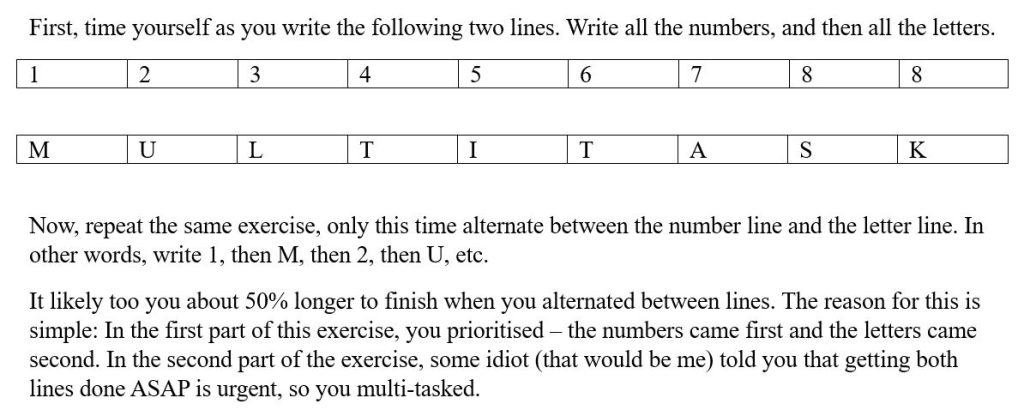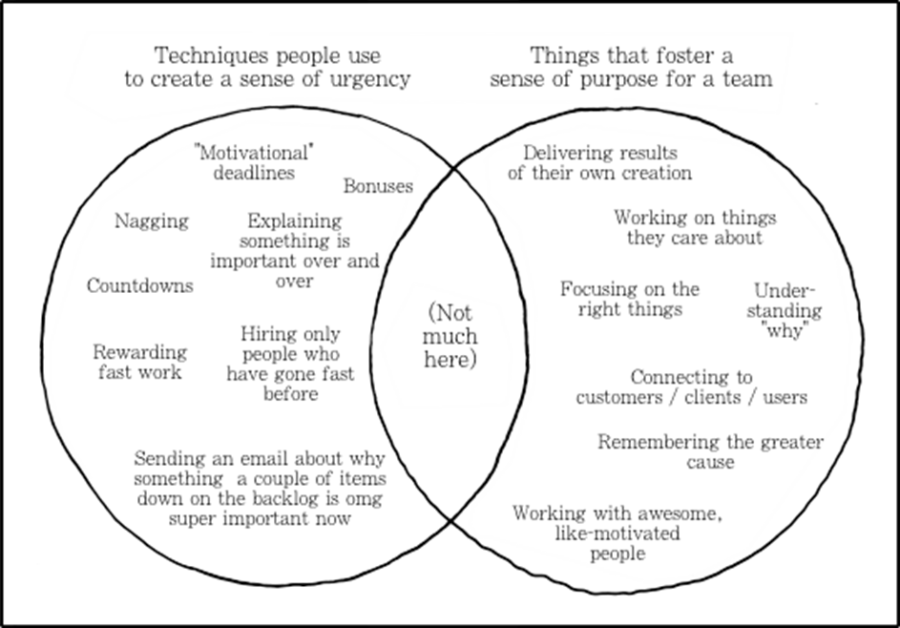False urgency killing our culture.
“When everything is urgent, nothing really is”.
Urgency culture, the idea that we are all available on demand almost all the time, didn’t start with the pandemic, but the pandemic has worsened and entrenched it.
Our notions of availability have both begun to dissolve and expand simultaneously.
False urgency embeds itself as a toxic part of work culture, becoming the new norm by stealth.
If you and your team find yourselves in a state of chronic and acute reactivity, it is likely that you are operating within an urgency culture that causes more harm than productivity.
Urgency culture inevitably leads to burnout and a perpetual state of overwhelm and perma-stress.
Managers and employees who see every change as the most important and cannot identify priorities fall prey to false urgency.
These are the organisations that tend to ‘boil the ocean’ and go overboard making the task or project unnecessarily difficult.
Managers think if their employees are showing desperate energy, such as running from meeting to meeting, then they have a sense of urgency, and it can also make the employee feel as though they excel at firefighting.
Mindless busyness becomes the norm.
The hyper-productivity trap.
This sense of urgency, impatience, and scarce over-booked time has become pervasive and is a recipe for making poor decisions and wasting a lot more time down the track.
Rushing and running in many directions does not equate to progress or value creation.
There is a vast difference between planned operational tempo and hysteria and anxiety.
Operating under chronic pressure and constantly reacting to perceived external events turns urgency into a toxic soup. We end up spending our days (and nights) dealing with self-inflicted fires.
Urgent is stressful because managers equate a state of constant alert with high performance.
They make people jump from one fire to another instead of doing meaningful work.
They create a culture of grind, burnout, and resentment.
People simply can’t get work done at work anymore and increasingly try to do so outside of scheduled business hours.
Time panic convinces our ancient survival brains that we are under serious threat, activating fight-flight mechanisms and compromising wellbeing.
Urgency is good only when it is a component of prioritisation and planning but very bad when it becomes the default operating mode for a company.
“Technology has played a large role in amping up the hyperventilation, creating an illusion that the speed with which communications travel can be duplicated by the humans on the other end of them. Devices and the interruptions they rain down on us have also undermined attention spans, and with that the ability to regulate impulse control.”
Symptoms of false urgency.
1. Your team uses phrases like smashed, ‘chaos’, ‘out of control’, ‘frantic’, ‘crazy’, ‘hectic’ or ‘manic’ to describe business-as-usual tempo. Bonus points if they are used competitively or to suggest heroic effort.
2. Diaries are filled with back-to-back meetings.
3. Projects spawn organically without clear integration and alignment with the organisation’s vision and mission and operational imperatives.
4. Overwhelm and/or apathy is a common response to new goals or duties or challenges.
5. Stress levels run high as evidenced by outbursts of frustration or anger and rising health concerns.
6. Passive aggressive behaviour is common e.g. deliberate procrastination, sabotage, sarcasm, pretending not to understand, blaming, withholding information, excessive electronic communication to avoid F2F, gossip.
7. There is a pervasive belief in the team that people are always being pushed to the limit in each moment and most days are bad days at work.
8. Poor decision making including emotional decisions, snap decisions or an absence of decisions.
9. A crisis mentality prevails those rewards ‘individual heroics’, which cause people to believe they can interrupt anyone at any time, which drives more time panic as the interruptions make people fall behind in their work.
10. Expectations of instant response to emails, no matter how innocuous they may be, with no regard for the time of day or day of week.
11. Urgency manifests itself as relentless multitasking and is used a motivator, with time equated to commitment.

“Give me six hours to chop down a tree and I will spend the first four sharpening the axe.”
Multitasking exercise.

Practical tips for fending off urgency culture.
1. Detail any after-hour expectations in writing so your colleagues and employers know exactly where you stand and what can be expected from you.
2. Be sparing on sending emails and digital messages after work hours.
3. Try to curb using certain words and phrases including ‘urgent’, ‘immediately’, ‘I need this before you go home’, etc.
4. Don’t make being available on demand a badge of honour or rewards individual heroics. Be an advocate for a healthy work-life balance.
5. Communicate critical deadlines calmly and try not to allow your own stress to colour your communication.
6. Plan your workload strategically to reduce the likelihood of urgent and last-minute requests.
7. Set limits on checking email during the day and quarantine ‘deep thinking’ time.
